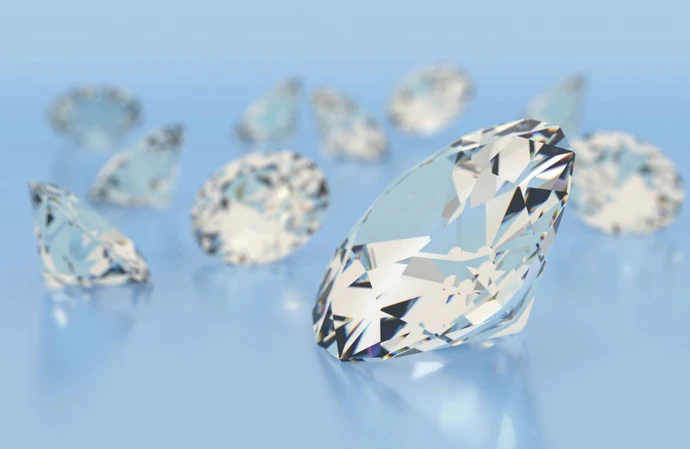Jewellery industry braces itself for new sanctions from G7 nations to block imports of Russian diamonds
As Vladimir Putin continues to wage war on Ukraine, the diamond industry is bracing itself for new sanctions from the G7 nations that would block the import of diamonds mined in Russia.

The diamond industry is bracing itself for new sanctions from the G7 nations that would block the import of jewels mined in Russia.
Britain, Canada, France, Germany, Italy, Japan and America’s looming blockade on the gemstones is part of further Western sanctions set to be imposed on the pariah nation amid president Vladimir Putin’s ongoing bombardment of Ukraine.
It is likely to cause havoc in the diamond industry as jewellery shoppers may see prices soar if there is a shortage of non-Russian diamonds after more sanctions are imposed.
Paul Zimnisky, a diamond industry analyst based in the New York City, told the New York Times: “The current US sanctions only covered rough Russian diamonds or those cut and polished inside Russia.
“Given 90 per cent of diamonds are cut and polished in India, and can therefore be classed as Indian gems, the current regulations aren’t as strict as you might think.”
But he added some responses were “far more stringent than the government regulations required” with numerous high-profile luxury jewellery players, including Richemont and LVMH Moët Hennessy Louis Vuitton, telling suppliers they wouldn’t buy Russian stones – putting the onus on suppliers to disclose the provenance of their gems.
Brad Brooks-Rubin, a senior adviser in the Office of Sanctions Coordination in the US State Department, said consumers in the G7 nations account for almost 70 per cent of all diamond purchases.
He added: “By cutting off most of their demand, if an import ban were to be agreed, Russian diamonds would have a narrower lane through which to work their way into the marketplace.
“The focus of all discussions is how to target Alrosa and Russia’s diamond revenues that could then be funnelled to their war efforts.”
The formal announcement of G7 sanctions is expected in September, and negotiators are still finalising the exact terms for tracking and tracing individual gemstones and accompanying customs paperwork.
The expectation is that these new sanctions would come into effect in January, after the Christmas retail season.
It’s been 19 months since Russia invaded Ukraine.
Russia is the world’s biggest diamond exporter by volume, with a state-owned company, Alrosa, mining almost one third of all diamonds produced in 2021.
To prevent funds from flowing into the country’s war effort, America – which is the planet’s largest market for finished diamonds – took action last spring when President Biden banned the import of rough diamonds from Russia.
Other countries imposed sanctions including Britain, which early this year announced a total ban on Russian diamonds.
The European Union repeatedly tried in 2022 to enforce sanctions on Russian diamonds, but was prevented by Belgium because of protests from Antwerp, the Belgian city that is a leading trade hub for precious stones.







